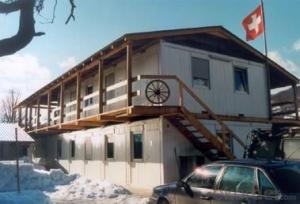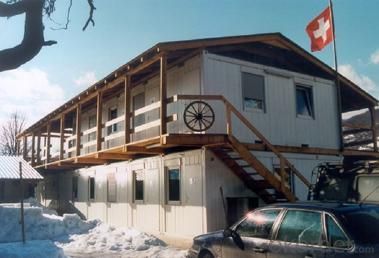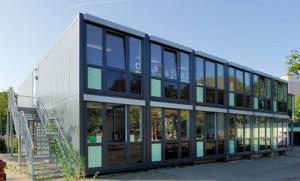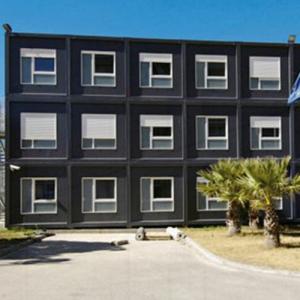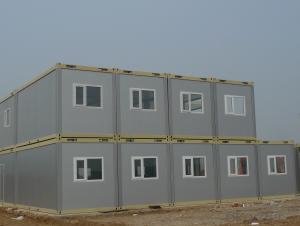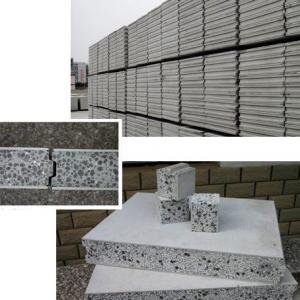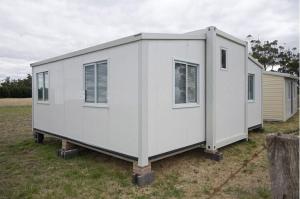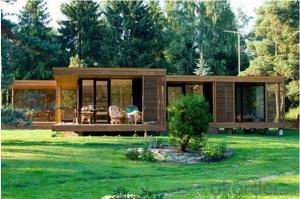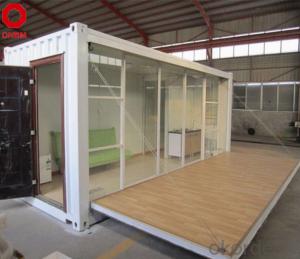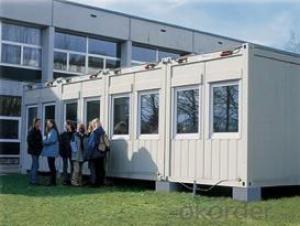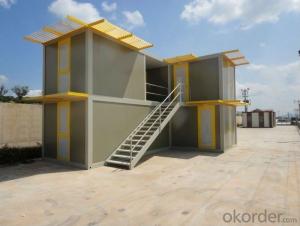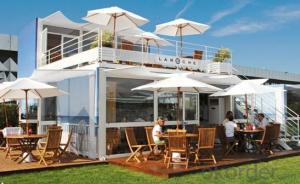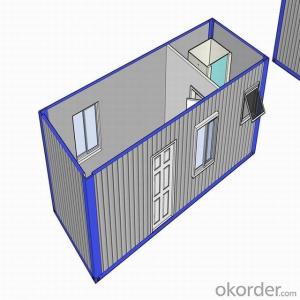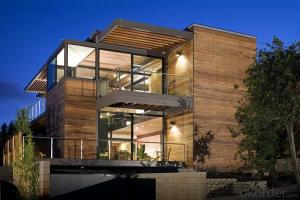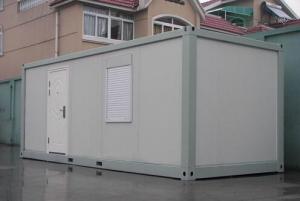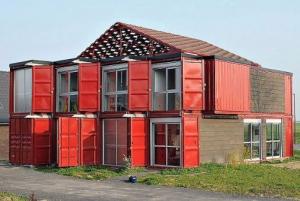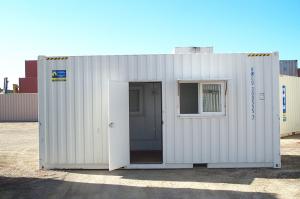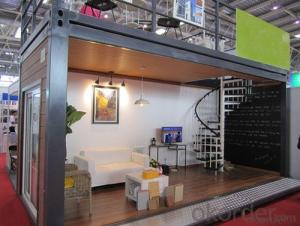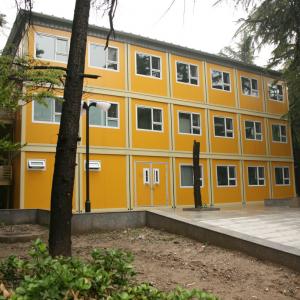High quality decorated container house for cold area
- Loading Port:
- China Main Port
- Payment Terms:
- TT OR LC
- Min Order Qty:
- -
- Supply Capability:
- -
OKorder Service Pledge
Quality Product, Order Online Tracking, Timely Delivery
OKorder Financial Service
Credit Rating, Credit Services, Credit Purchasing
You Might Also Like
High quality decorated container house for cold area
Specification

Production Process
Frame
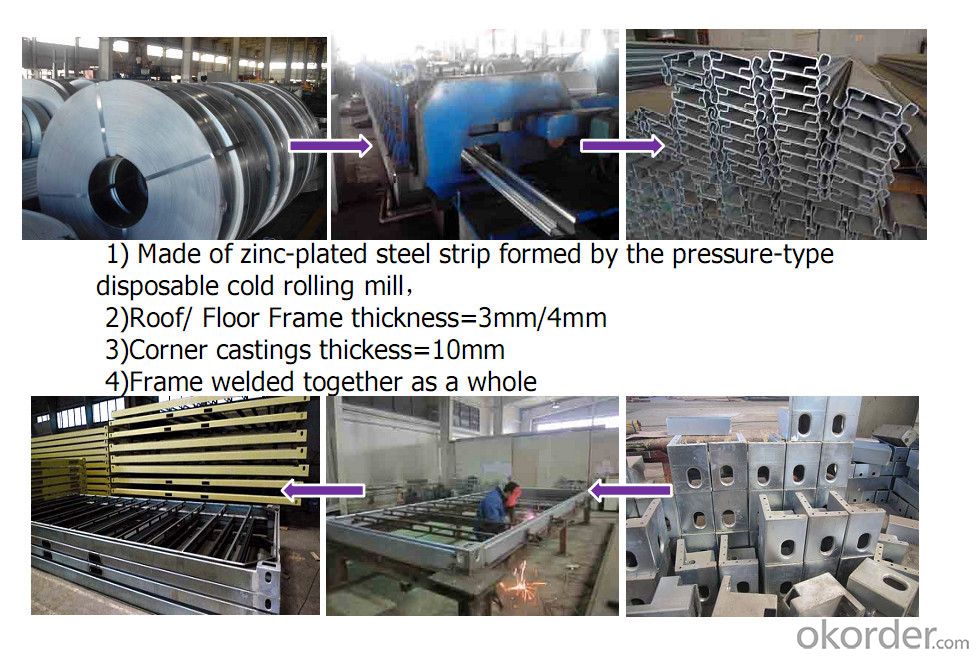
Floor
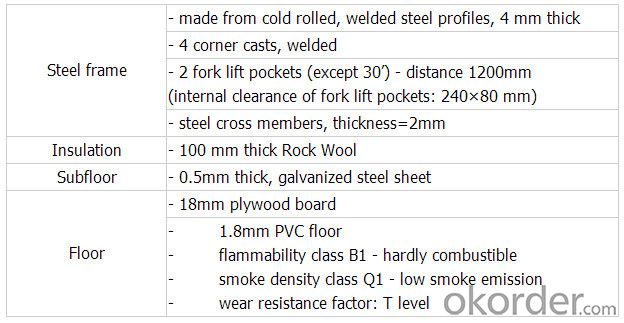
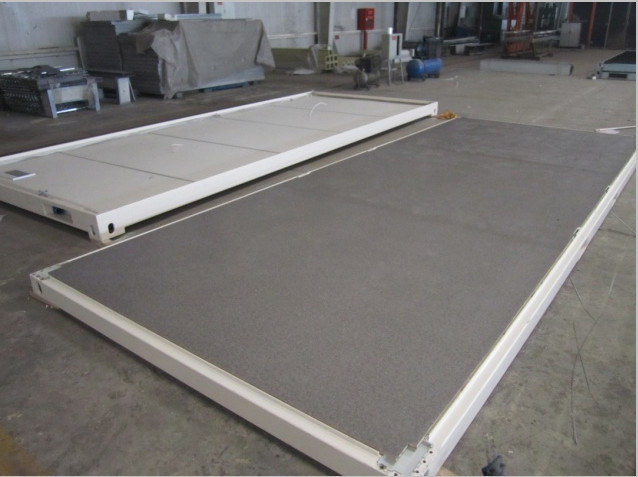
roof
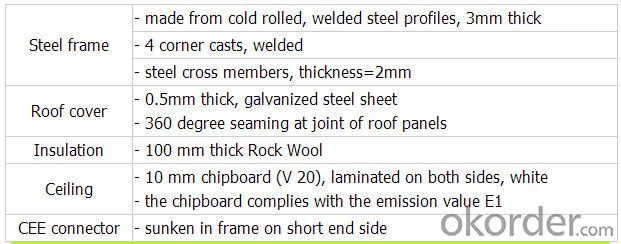
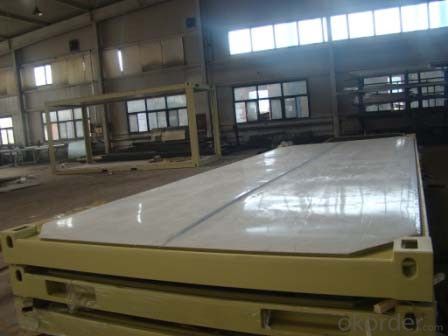

Window
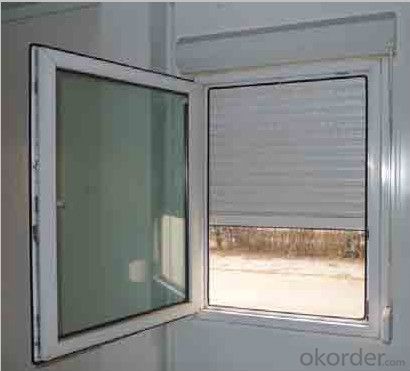
Door
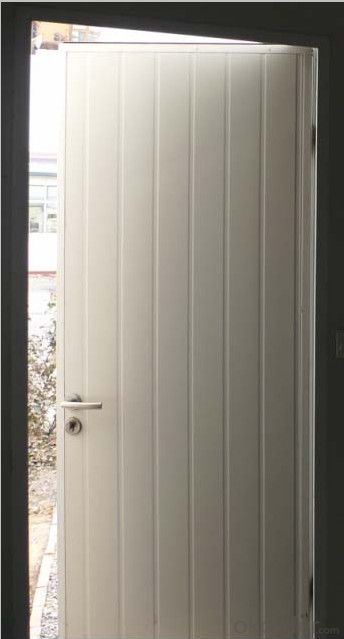
Layout
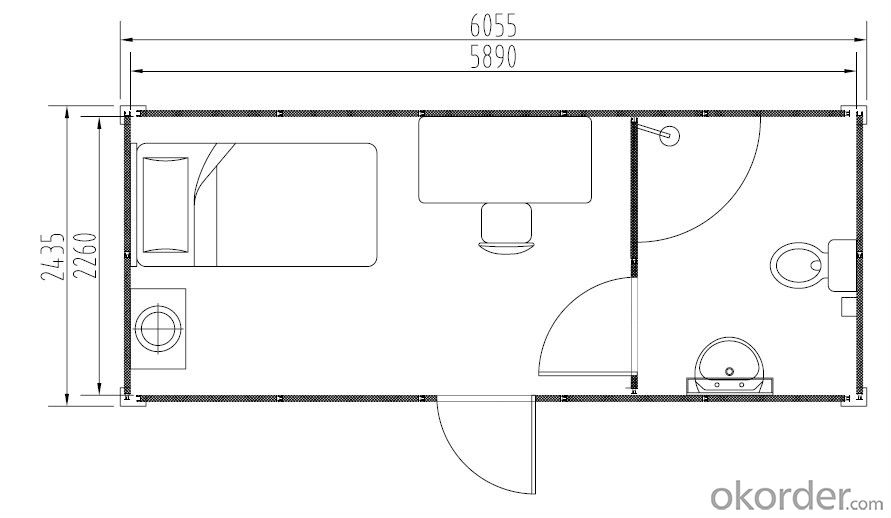
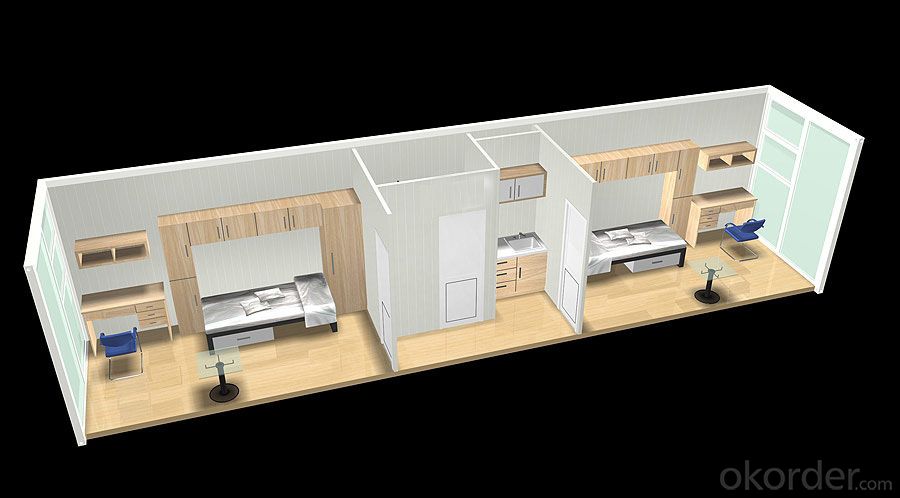
Application
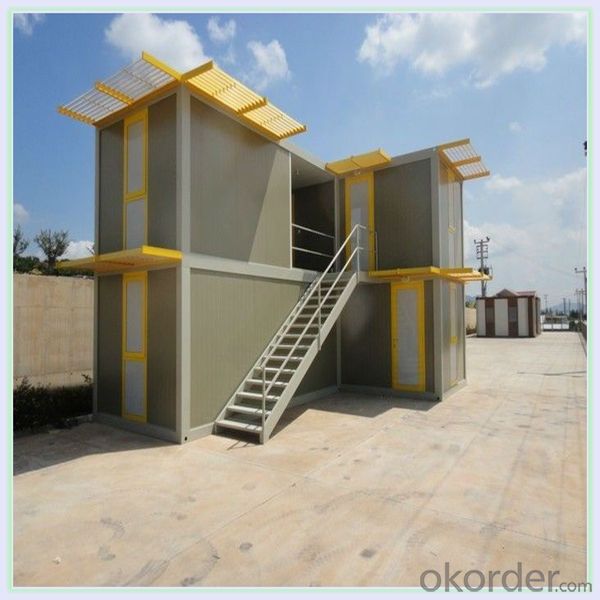
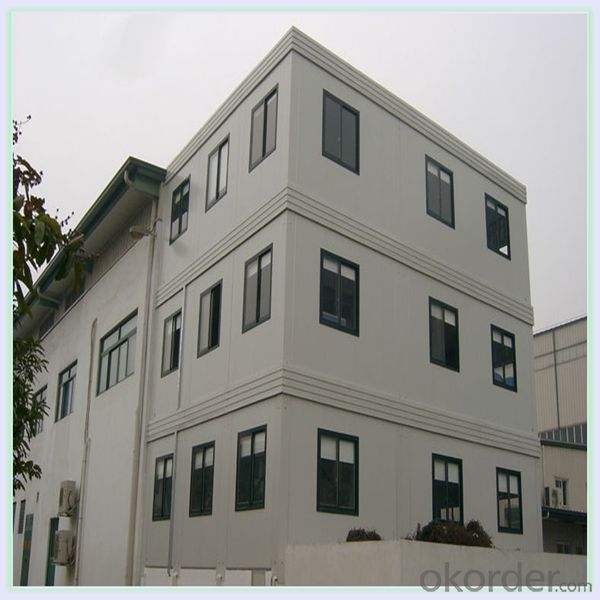
we also have prefab villa house
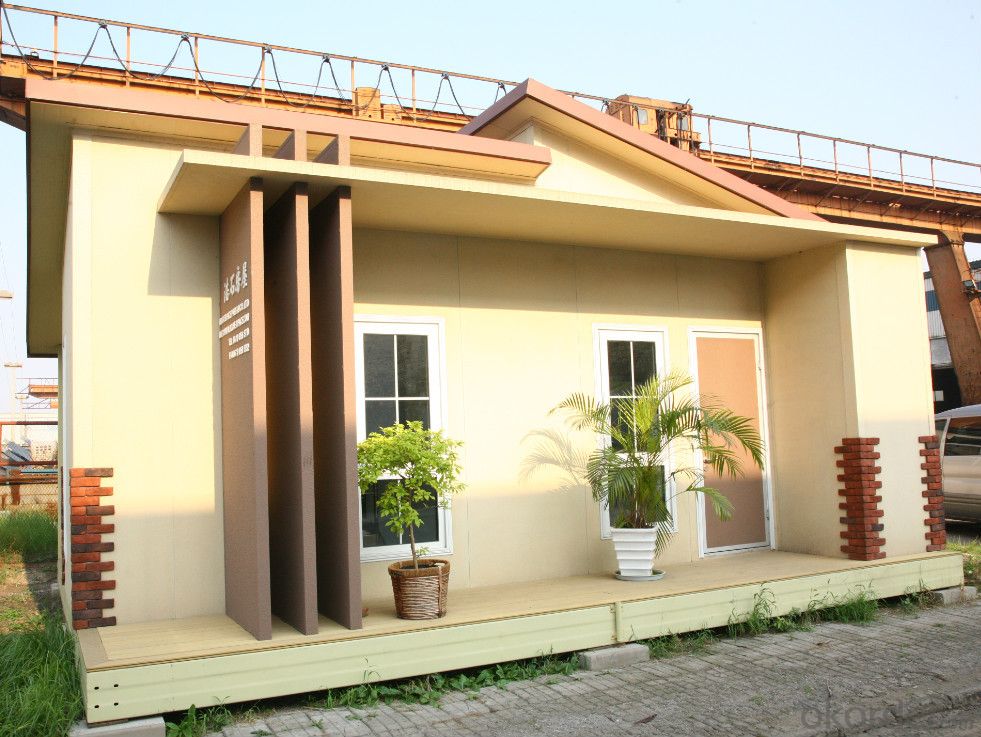
- Q: Can container houses be designed with a swimming pool?
- Yes, container houses can be designed with a swimming pool. While container houses are typically compact and have limited space, it is possible to incorporate a swimming pool into the design. This can be achieved by utilizing the available space creatively, such as by building an elevated pool on the roof or incorporating it within the structure of the house itself. Additionally, container houses can also be expanded or modified to accommodate a separate pool area adjacent to the main living space. With proper planning and design, container houses can indeed include a swimming pool to enhance the overall living experience.
- Q: Are container houses resistant to extreme temperatures?
- The ability of container houses to withstand extreme temperatures is determined by the particular construction and insulation methods employed. While shipping containers are composed of heat and cold-conducting steel, they can be modified to effectively insulate against extreme temperatures. Insulation materials such as foam or spray foam can be used to line the container's walls and roof, thereby regulating internal temperature and minimizing heat transfer. Additionally, the installation of double-glazed windows, solar panels, and efficient HVAC systems can further optimize temperature control. However, it is important to acknowledge that the insulation and temperature resistance of container houses may vary depending on construction quality, location, and specific climate conditions. Proper planning, design, and insulation techniques are crucial in ensuring the resistance of container houses to extreme temperatures.
- Q: Can container houses be financed like traditional houses?
- Indeed, container houses can be financed in a similar manner to conventional houses. Numerous banks and financial institutions provide loans and mortgage alternatives designed specifically for container houses. These loans operate similarly to typical home loans, necessitating regular monthly payments over a predetermined duration. Nevertheless, it is important to recognize that the financing possibilities for container houses may differ depending on the lender and individual circumstances. Certain banks may impose more stringent lending criteria or impose distinct terms and conditions for container houses in contrast to traditional houses. It is recommended to seek advice from lenders who specialize in alternative housing choices to assess the most fitting financing options for container houses.
- Q: How much do container houses cost?
- The cost of container houses can vary depending on various factors such as the size of the container, the level of customization, location, and additional features. On average, a basic container house can range anywhere from $15,000 to $50,000. However, if you opt for a larger size or more luxurious design, the cost can go up to $100,000 or more. It is important to note that these are just rough estimates, and prices can significantly differ based on individual preferences and local market conditions. Additionally, it is recommended to consider additional expenses like permits, foundation, utilities, and interior fittings when calculating the overall cost of a container house.
- Q: How do container houses compare to traditional houses in terms of cost?
- Container houses generally tend to be more cost-effective compared to traditional houses. The cost of building a container house is typically lower due to the use of recycled shipping containers, which significantly reduces the material and labor costs required for construction. Additionally, container houses are generally quicker to build, which further reduces labor costs. The price of a traditional house can be significantly higher due to various factors such as land cost, extensive foundation work, and the need for various building materials. On the other hand, container houses can be placed on various types of land, including small or irregularly shaped lots, potentially saving on land costs. Moreover, container houses are designed to be energy-efficient, which can result in long-term cost savings. Proper insulation and ventilation systems can help reduce heating and cooling expenses, making container houses more affordable to maintain. However, it is important to note that the overall cost of a container house can vary depending on factors such as customization, location, and the level of finishings and amenities desired. While container houses generally offer cost advantages, it is crucial to thoroughly research and plan to ensure that all necessary considerations are taken into account to accurately compare the costs with traditional houses.
- Q: Can container houses be designed with unique architectural features?
- Certainly, unique architectural features can indeed be incorporated into container houses. Although the fundamental structure of a container house originates from shipping containers, the design possibilities are virtually boundless. Architects and designers have successfully crafted container houses that exhibit one-of-a-kind and innovative architectural elements. Container houses can be tailor-made and altered to include an array of architectural components, such as expansive windows, skylights, rooftop gardens, balconies, and even multi-level designs. By stacking or arranging the containers in different configurations, fascinating shapes and layouts can be achieved. Some container houses have been ingeniously designed to integrate open floor plans, loft spaces, and inventive storage solutions. Furthermore, container houses can be combined with conventional building materials like wood, glass, and steel, resulting in a hybrid design that harmoniously blends the industrial aesthetic of containers with more traditional architectural features. This allows for the creation of extraordinary and visually pleasing homes that stand out from the ordinary. Additionally, container houses can also be designed to be environmentally friendly and sustainable, incorporating features such as solar panels, rainwater harvesting systems, and green roofs. These features not only contribute to the overall architectural design but also enhance the functionality and efficiency of the container house. In conclusion, container houses possess the potential to be designed with distinctive architectural features. With the appropriate level of creativity and expertise, container houses can be transformed into stunning and unique dwellings that reflect the individuality and style of their owners.
- Q: Can container houses be built with a home office or study area?
- Yes, container houses can definitely be built with a home office or study area. One of the great advantages of container houses is their versatility and adaptability. They can be easily modified and customized to suit the specific needs and preferences of the homeowner. To create a home office or study area in a container house, the container can be divided into different sections or rooms. The partition walls can be added to create a separate space for work or study. These walls can be made of various materials, such as drywall or plywood, depending on the desired aesthetic and functionality. Additionally, windows can be strategically placed to provide ample natural light, which is essential for a productive work or study environment. Adequate insulation can be installed to ensure a comfortable temperature throughout the year. Furthermore, container houses can also be equipped with the necessary electrical outlets and internet connections to support the operation of computers, printers, and other office or study equipment. Overall, container houses offer a great opportunity to have a dedicated home office or study area. With proper planning and design, these spaces can be functional, comfortable, and conducive to productivity and focus.
- Q: Are container houses suitable for minimalistic living?
- Yes, container houses can be a great fit for minimalistic living. Minimalism is all about living with less, and container houses provide a perfect solution for that. These houses are built using shipping containers, which are already minimalistic in nature due to their compact size and simplicity. Container houses offer several advantages for minimalistic living. Firstly, their small size promotes a clutter-free lifestyle, encouraging the residents to only keep the essentials. This can help individuals adopt a minimalist mindset and focus on what truly matters to them. Additionally, container houses can be customized to fit the needs and preferences of minimalistic living. The limited space forces individuals to carefully consider their belongings and prioritize what they truly need. This promotes intentional living and helps people avoid unnecessary material possessions. Furthermore, container houses often feature open floor plans, maximizing the use of space and allowing for multifunctional areas. This helps in reducing the need for excessive furniture or unnecessary rooms, aligning well with the minimalistic lifestyle. Container houses also offer sustainability benefits, which are often valued by minimalists. By repurposing shipping containers, these houses contribute to recycling and reducing waste. They can also be designed to incorporate eco-friendly features such as solar panels, rainwater harvesting systems, and energy-efficient insulation, further supporting a sustainable and minimalistic lifestyle. In conclusion, container houses are indeed suitable for minimalistic living. Their compact size, customization options, open floor plans, and sustainability benefits make them an ideal choice for those looking to embrace a minimalist lifestyle.
- Q: Are container houses suitable for areas with extreme weather conditions?
- How container houses perform in areas with extreme weather conditions depends on their design and construction. If properly designed and constructed, container houses can withstand extreme heat, cold, wind, and even seismic activity. One of the main advantages of container houses is their structural strength. Shipping containers are built to endure harsh conditions during transportation, including storms and rough seas. This inherent strength makes them a suitable choice for areas prone to hurricanes, tornadoes, or heavy snow loads. By adding extra steel supports, the container's ability to withstand extreme weather conditions can be further enhanced. Insulation is another crucial factor in making container houses suitable for extreme weather. Proper insulation helps regulate the internal temperature, keeping the interior cool in hot climates and warm in cold climates. Various insulation materials, such as spray foam, rigid foam boards, or fiberglass batts, can be used to achieve this. Additionally, double-glazed windows and energy-efficient doors can contribute to better insulation and energy savings. Moreover, container houses can be designed with features that reduce the impact of extreme weather. For instance, sloped roofs can effectively shed snow or rainwater, preventing excessive weight or leakage. Installing hurricane shutters or impact-resistant windows can protect against high winds and flying debris. Additionally, incorporating passive design principles, like strategically placed windows for natural light and ventilation, can reduce the reliance on mechanical heating or cooling systems. However, it is important to note that container houses still require careful planning, engineering, and professional construction to ensure their suitability for extreme weather conditions. Local building codes and regulations should be followed, and consulting experts in container house construction is highly recommended. With the right design, materials, and construction techniques, container houses can indeed be a viable option for areas with extreme weather conditions.
- Q: Can container houses be moved?
- Indeed, container houses have the capability to be relocated. The mobility factor stands as one of the primary benefits of container houses. These dwellings are constructed utilizing recycled shipping containers, which are specifically engineered for effortless transportation. Their durability is designed to endure the demanding conditions of shipping, including stacking and movement via cranes or trucks. Typically, container houses are positioned on a foundation or a robust support system; however, if the need arises, they can be effortlessly lifted and transferred to an alternative location. As a result, container houses present a versatile and portable housing solution, perfect for individuals who require frequent relocation or desire the ability to change their living environment in the future.
Send your message to us
High quality decorated container house for cold area
- Loading Port:
- China Main Port
- Payment Terms:
- TT OR LC
- Min Order Qty:
- -
- Supply Capability:
- -
OKorder Service Pledge
Quality Product, Order Online Tracking, Timely Delivery
OKorder Financial Service
Credit Rating, Credit Services, Credit Purchasing
Similar products
Hot products
Hot Searches
Related keywords
